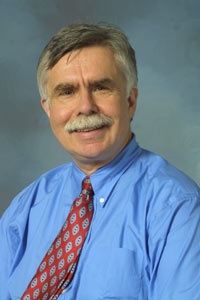 In her recent post, “Is Anybody Out There,” Marquette law student student Tiffany Winter bemoaned the fact that few of her Marquette Law School classes have featured meaningful class discussions. In a comment to Tiffany’s post, Professor David Papke suggested that at least part of the problem may lie with the “pedagogical starting point of most law professors.” By this he means that law professors typically attempt to convey to students their own substantial knowledge of the subject matter rather than leading them, to use Papke’s phrase, “on a voyage of discovery.”
In her recent post, “Is Anybody Out There,” Marquette law student student Tiffany Winter bemoaned the fact that few of her Marquette Law School classes have featured meaningful class discussions. In a comment to Tiffany’s post, Professor David Papke suggested that at least part of the problem may lie with the “pedagogical starting point of most law professors.” By this he means that law professors typically attempt to convey to students their own substantial knowledge of the subject matter rather than leading them, to use Papke’s phrase, “on a voyage of discovery.”
I basically agree with David Papke, although I have a slightly different take on the sources of the problem (i., e., the lack of vibrant in-class discussions). Like Professor Papke, I entered law teaching with a background in Arts & Sciences teaching, and at the outset of my career more than twenty years ago, I resolved not to duplicate the teaching styles to which I had been exposed in law school.
At the time, it seemed to me that there were basically two types of law teachers.One type sought to impart a particular understanding of the subject matter of the course through a highly manipulative use of questions called the “Socratic Method.”(As my friend Stavros Macrakis once put it, “You are led around by the nose until you say exactly what the questioner wants you to say.”) The other type possessed a strong, ideologically-based notion what the law of a particular area should be, and class time was devoted to illustrating the correctness of the professor’s vision.Meaningful class discussions occasionally occurred in both formats but neither style of teaching required them or necessarily encouraged them.
When I was in law school, I particularly enjoyed taking classes in legal history because those courses did offer a less authoritative approach to law and often lent themselves to extremely valuable class discussions. My legal history professors at the University of Virginia–Ted White, Chuck McCurdy, and Steve Presser–genuinely seemed interested in learning what their students thought about the material being studied. I did not have this feeling about any of my other classes.
As it turned out, I have been much more of a “socratic” style teacher than I would have ever predicted at the start of my law teaching career. That is partly because I have come to appreciate the way in which the method does in fact sharpen the analytical skills of students. (That it also turns them into aggressive interrogators who terrorize their non-lawyer, non-law student acquaintances is an unfortunate side-effect.)
But it is also because I have learned that the discussion model of legal education works only when students come to class thoroughly prepared. Modern casebooks are really textbooks, and every section contains a substantial amount of substantive materials that can be learned through careful reading. If every student came to class having carefully studied the assigned materials, the class could be devoted to a meaningful group discussion.
Unfortunately, I have found at Marquette and elsewhere that an instructor cannot assume that students have done this, particularly in upper level classes. Most students either scan the assignment or don’t read it at all, and come to class expecting the professor to identify for them what is really important in the assignment. It is hard to have a meaningful discussion of the persuasiveness of Justice Blackmun’s dissenting opinion in Kaiser Aetna v. United States when only a handful of students in the class can remember without checking what the case is about.
The problem is not simply one of student indifference or a matter of student priorities. Law courses have become laden down with detail. Forty years ago, the typical three-year law course consisted of 30 three-credit courses, 29 of which were essentially doctrinal. (Usually there was a 3-credit trial practice course taught in the third year.)
With that many courses devoted to just covering the substance of the law, a professor could maintain a slower pace, cover less, and provide more opportunity for discussion. Property, Torts, and Trusts and Estates are the three law school courses that I have taught most frequently during my career as a law professor. When I was in law school in the mid-1970’s, all three were year-long courses. However, for most of my teaching career, all three have been taught as one semester courses. The range of topics is slightly more narrow in the one-semester courses, but only slightly. In Property and T&E I cover all the topics that I would cover in a year long course and in Torts, I omit only a small number of subject areas. I also use the same casebook that I would use were I offering the course over a full-year. As a result, assignments are much longer and much more material must be “covered” in each class.
This is clearly a phenomenon not limited to the courses that I teach. The incorporation of courses on alternative dispute resolution and industry specialty courses like sports law and health law into the curriculum, the expansion of legal writing, and the increase in clinical opportunities have significantly reduced the number of traditional law courses that students take during law school, which has created pressure for the existing doctrinal courses to cover more ground than ever before.
Understandably, heavier work loads encourage students to embrace the “we go to class so that the professor will tell what we really need to know” view of legal education. Professors, sensing that students are not learning what they should from the assignments, find that lecturing on the assigned material does in fact help correct the problem. Once a critical mass of students embrace this view of classes, those students who show an interest in discussing the broader policy or jurisprudential aspects of the assigned material often appear to their peers as getting in the way of learning.
But in the end, I agree with Tiffany Winter. Classes involving informed, lively discussions are the best classes, and instructors should do what it takes to assure that such discussions occur.
 One tricky situation faced by many academics is how to respond to criticism of their work that the scholar does not believe is accurate or justified. A lot of scholars, in my opinion, don’t do this very effectively. The less effective responses are those in which the author is clearly indignant or angry. A reader who is not intimately familiar with the details is, I think, moved to conclude that the amount of emotion correlates to the degree to which the criticism has met its mark. I’ve always thought that the more persuasive response is one of faint bemusement—faint, because if the tone is openly mocking, that risks the perception among readers that the target did not take the criticism seriously enough.
One tricky situation faced by many academics is how to respond to criticism of their work that the scholar does not believe is accurate or justified. A lot of scholars, in my opinion, don’t do this very effectively. The less effective responses are those in which the author is clearly indignant or angry. A reader who is not intimately familiar with the details is, I think, moved to conclude that the amount of emotion correlates to the degree to which the criticism has met its mark. I’ve always thought that the more persuasive response is one of faint bemusement—faint, because if the tone is openly mocking, that risks the perception among readers that the target did not take the criticism seriously enough.
 In her recent post,
In her recent post,